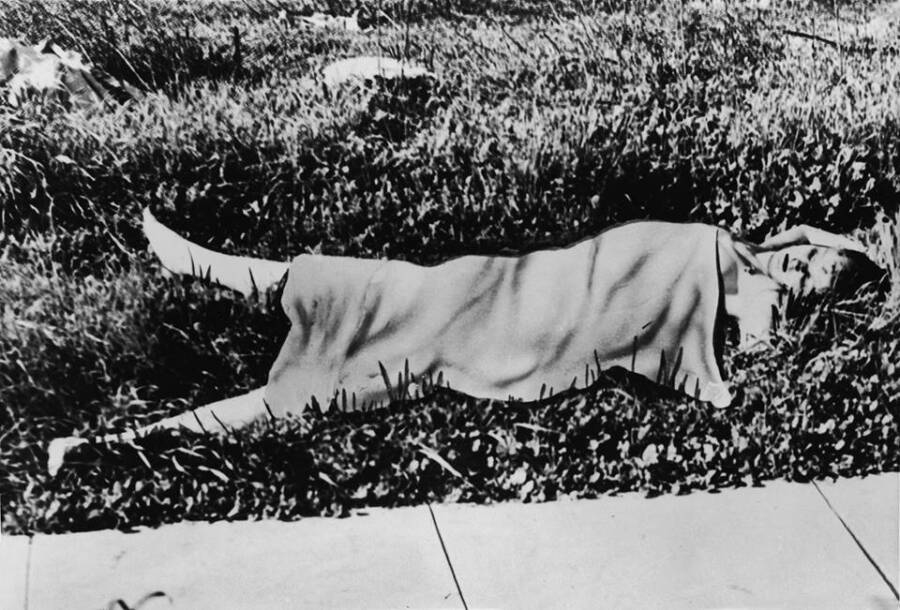The Black Dahlia: A Case That Sent Shivers Down Hollywood's Spine
On a cold January morning in 1947, a horrifying discovery shook Los Angeles to its core. Elizabeth Short, a young woman with dreams of stardom, was found brutally murdered in a vacant lot in the Leimert Park neighborhood. Her body, grotesquely mutilated and drained of blood, was bisected at the waist, leaving investigators and the public stunned. This tragic event would later be immortalized as the "Black Dahlia" case, one of the most infamous unsolved murders in American history.
Who Was Elizabeth Short?
Elizabeth Short, a 22-year-old aspiring actress from Massachusetts, had dreams of making it big in Hollywood. With her striking looks and charm, she hoped to carve out a career in the entertainment industry. But instead of fame and fortune, her story took a dark turn, ending in a brutal and senseless death. Her life was cut tragically short, and her legacy became one of mystery and unanswered questions.
The Gruesome Discovery
It was a mother walking her toddler through a park when she stumbled upon what she initially thought was a mannequin. On closer inspection, the horrifying truth unfolded—Elizabeth Short's body lay lifeless, posed unnaturally on the grass. Her face was grotesquely mutilated, her body drained of blood, and her torso severed at the waist. The scene was chilling, with not a drop of blood to be found, indicating that she had been killed elsewhere and dumped there. The precision of the cuts suggested the killer might have had medical knowledge, leaving investigators baffled and the public in shock.
Read also:Joel Kim Booster And His Boyfriend A Love Story To Remember
The Investigation: A Maze of Confessions and Dead Ends
As the news of Elizabeth's murder spread, the city was gripped by fear and fascination. During the initial investigation, the police received an overwhelming 60 confessions, most of them from men claiming responsibility for the crime. However, none of these confessions held up under scrutiny, and no concrete evidence was found to link any of them to the murder. Despite a thorough investigation involving over 150 suspects, no one was ever arrested, and the case remains cold to this day.
The Media Frenzy
The Black Dahlia case quickly became a media sensation, capturing the attention of the nation. Newspapers like the Los Angeles Herald initially dubbed the murder "The Werewolf Murder" before settling on the now-infamous nickname, "The Black Dahlia." The press coverage was relentless, with graphic details of the crime splashed across headlines, fueling public curiosity and outrage. The case remains a staple of true crime lore, captivating audiences even decades later.
Why Does the Black Dahlia Case Still Haunt Us?
Over 77 years have passed since Elizabeth Short's brutal murder, yet the case continues to intrigue and haunt us. The gruesome nature of the crime, combined with the lack of resolution, leaves a lingering sense of unease. People are naturally drawn to mysteries, and the Black Dahlia case offers all the elements of a gripping thriller—beauty, ambition, tragedy, and a killer who remains elusive. It's a reminder of the dark side of human nature and the fragility of life.
The Legacy of Elizabeth Short
Elizabeth Short's legacy extends far beyond the tragic circumstances of her death. She has become a symbol of the countless unsolved cases that haunt our collective consciousness. Her story serves as a cautionary tale about the dangers lurking in the shadows of even the brightest cities. While the identity of her killer may never be known, Elizabeth's memory lives on in the annals of true crime history, a poignant reminder of the importance of justice and closure for victims and their families.
Final Thoughts
The Black Dahlia case is more than just a murder mystery; it's a reflection of the complexities of human nature and the lengths to which some will go. Elizabeth Short's story is a tragic one, but it continues to inspire conversations about crime, justice, and the human condition. As we delve deeper into the details of her life and death, we are reminded of the importance of remembering those who have fallen victim to senseless violence. Her story may never have a definitive ending, but it will always be a part of our shared history.


